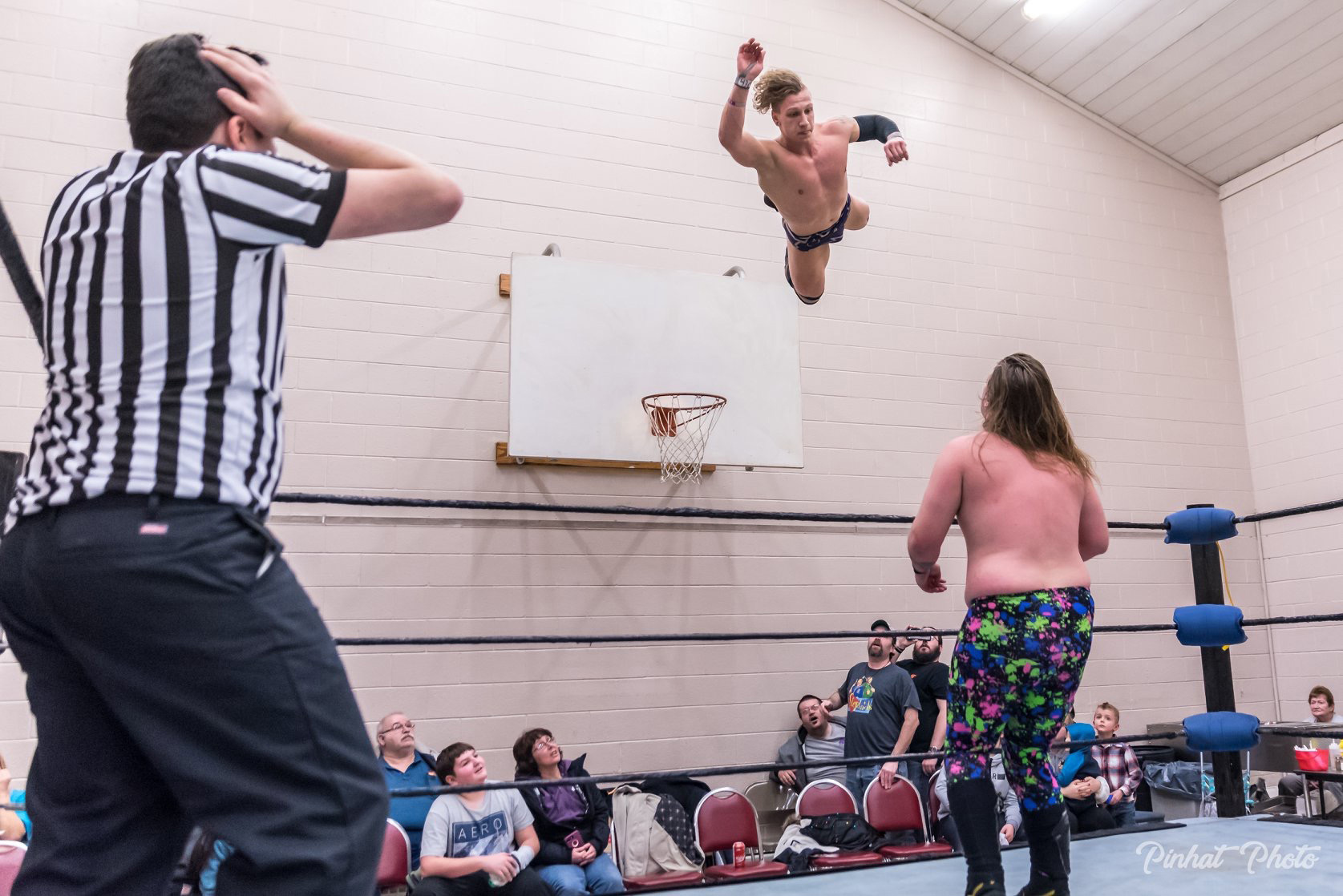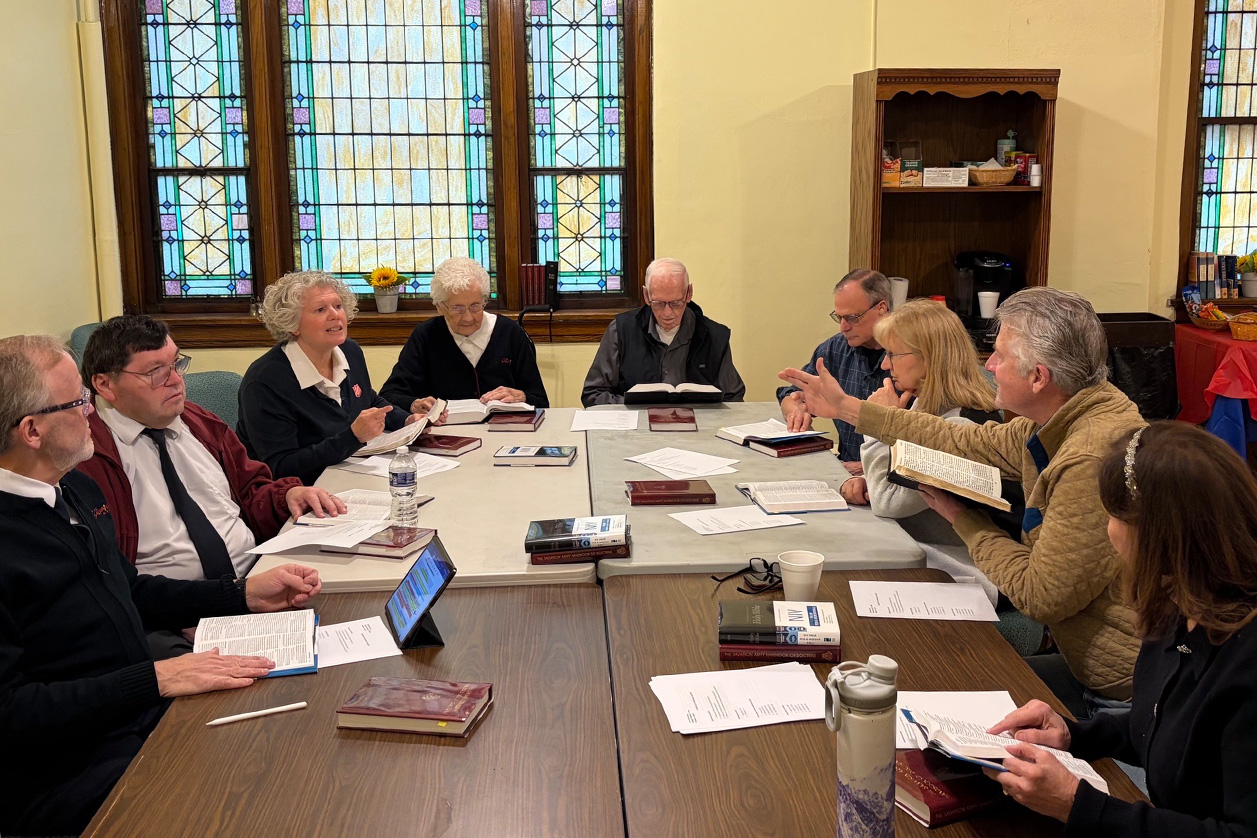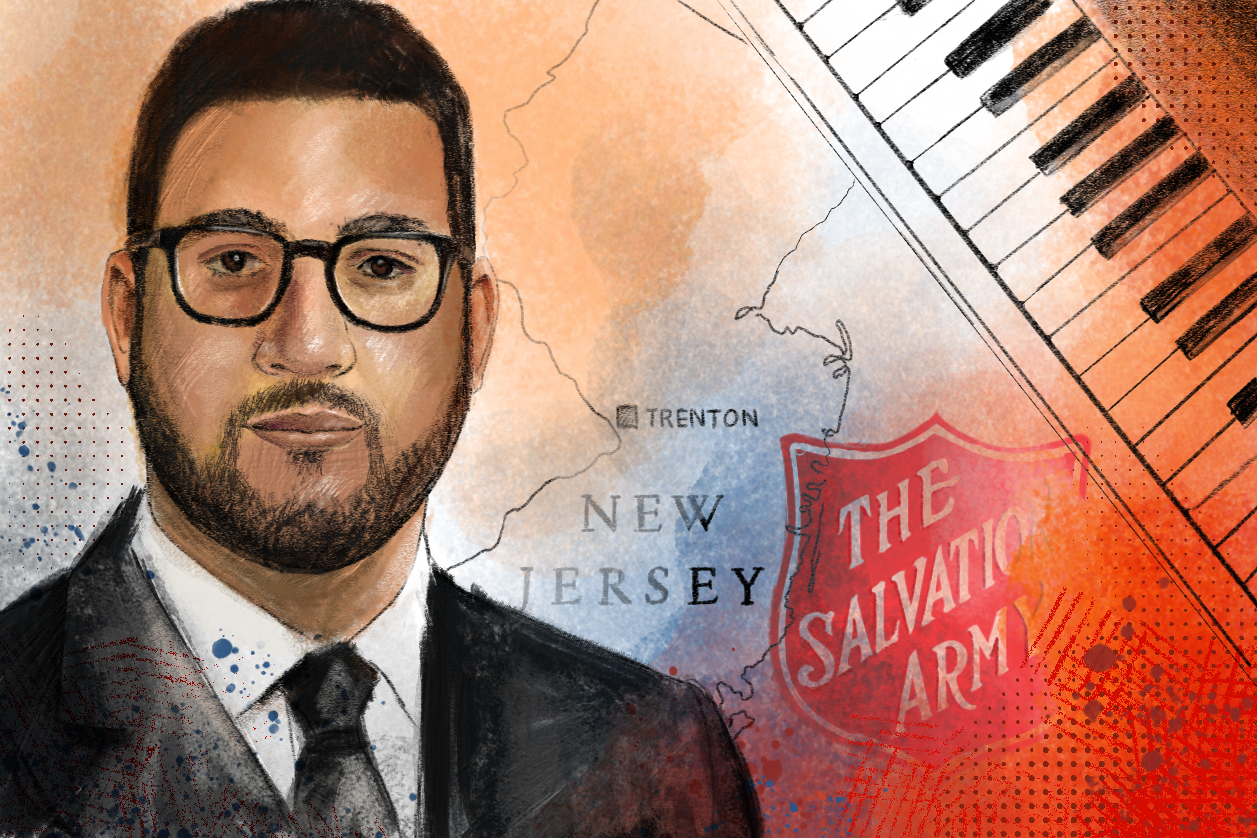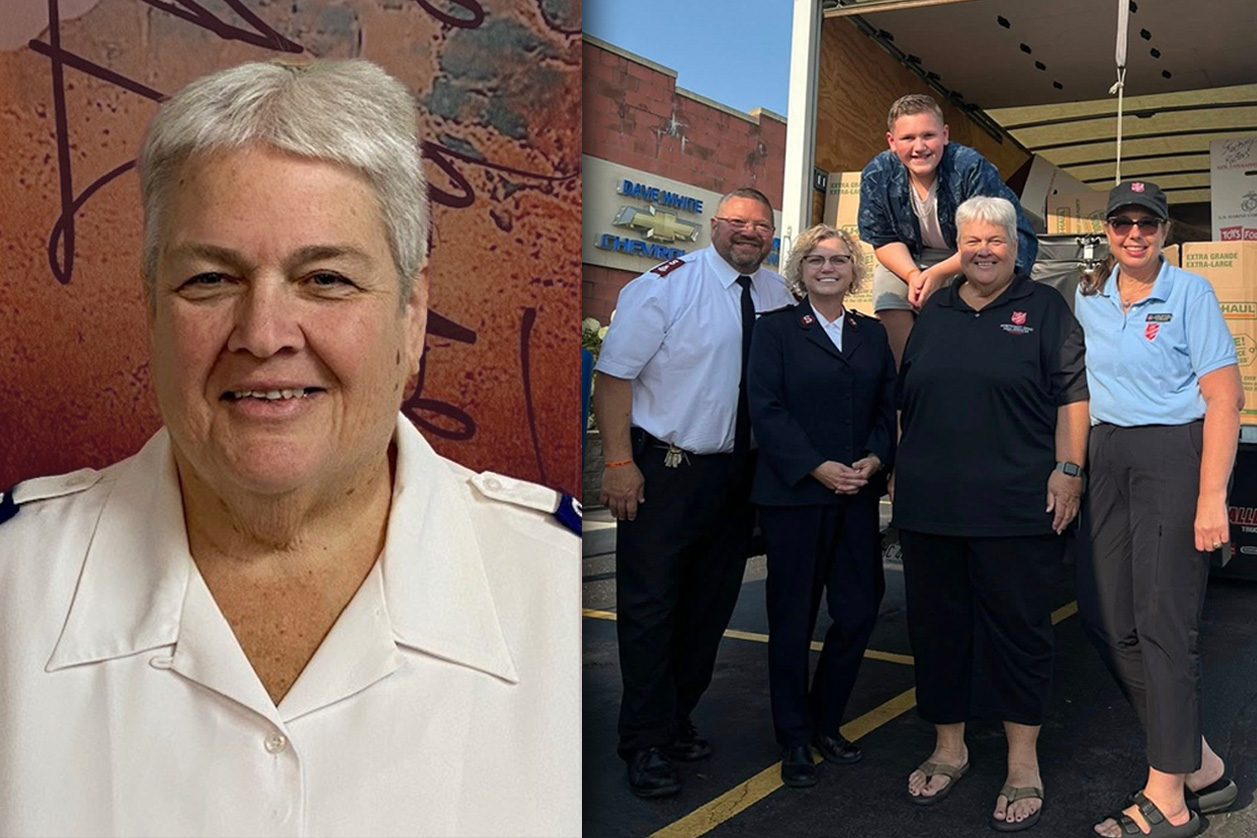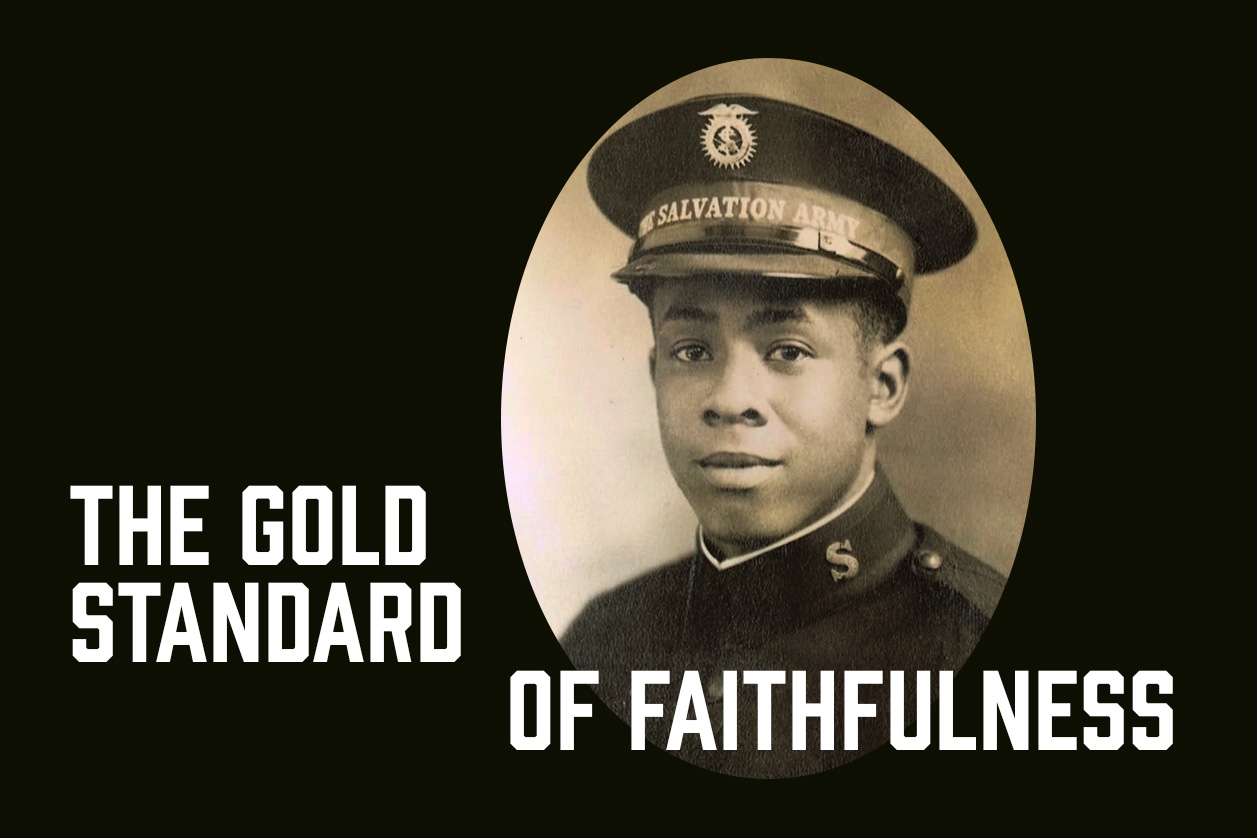From mat to mission
by Hugo Bravo
Wrestlers share their time and talent with The Salvation Army
The first time Jordan Ernest Burroughs stepped inside a wrestling class, he saw how different it was from the pro wrestling he had watched on TV. In the class, there were no intricate storylines and larger–than–life characters with names like “The Ultimate Warrior” and “Macho Man” Randy Savage. But when Jordan won his first trophy at a wrestling tournament, he was hooked on the sport. He went to the University of Nebraska on a wrestling scholarship and won tournaments across the world, including at the 2012 Olympics in London. Jordan Burroughs is now recognized as one of the greatest freestyle wrestlers of all time.
“I was raised in Sicklerville, N.J., but my parents worked for a union, Local 332, in Philadelphia,” Jordan says. “My mom would drop me off at The Salvation Army for day camp in the summers. I learned how to swim, play basketball, and met children from other cultures.”
 He also learned why sports are important for young people. “Sports transcend all backgrounds, economic status, races, and religion. It didn’t matter how nice our houses were or what kind of car our parents drove. We were all striving to be better at what we were learning,” says Jordan, who was about to host a Saturday wrestling class for kids at The Salvation Army Ray & Joan Kroc Corps Community Center in Camden, N.J.
He also learned why sports are important for young people. “Sports transcend all backgrounds, economic status, races, and religion. It didn’t matter how nice our houses were or what kind of car our parents drove. We were all striving to be better at what we were learning,” says Jordan, who was about to host a Saturday wrestling class for kids at The Salvation Army Ray & Joan Kroc Corps Community Center in Camden, N.J.
Burroughs is the first Olympic wrestler to volunteer his time to The Salvation Army Eastern Territory. But all over the country, pro wrestling organizations have worked with local Army corps to ring the bell at Christmas, raise funds for children’s programs, and unite as a formidable “tag team” in ministry.
Nashville’s greatest
Third–generation pro wrestler Jeffrey Leonard Jarrett had his first match at 18 years old, at his father’s Continental Wrestling Association (CWA). Since then, “Jeff” Jarrett has held over 80 wrestling championship reigns in America, Japan, and Mexico. He is best known for his time in World Championship Wrestling (WCW) and Total Nonstop Action Wrestling (TNA), where he was a multiple–time champion and one of the company’s top stars.

The Salvation Army Nashville
Today, as both an on–air talent and director of business development for All Elite Wrestling (AEW), he remains one of the industry’s most respected figures.
“Several years ago, when I was going through a personal, dark period in my life, I met people who had been saved by The Salvation Army in Florida. This led me to do more research on the Army, and I learned about its incredible, year–round work,” says Jeff. “They don’t see homelessness as some thing that people are, but rather something people are experiencing. They work to lift them out of their situation. They address the mental health issues that so many people on the street suffer from. I even learned the little facts about history, such as how the phrase ‘on the wagon’ originally started in The Salvation Army.” Jeff was also impressed by the Army’s structure, particu larly how corps officers (pastors) can serve in many churches throughout their lives.
“When I moved back home to Nashville from Florida, I remember telling my wife, Karen, that I wanted to help my local Salvation Army in any way I could, if they would have me,” he says.
As a member of the Nashville Salvation Army advisory board, Jeff and the Army have formed a partnership to increase its presence in the city. He has helped them connect with the Preds Foundation, the community service organization of the Nashville Predators professional hockey team. It’s now a yearly tradition to have bell ringers at Predators hockey games, with Jeff as the Red Kettle ambassador during the Christmas season. He is always thrilled to represent The Salvation Army and bring about new opportunities to make real change in the Nashville community.
“What makes the Army unique among so many nonprofits is its mission, which is centered in Christ. Whether you’re an officer, volunteer, or board member, your work is driven by God,” he says. “Today, we never know how the enemy is going to approach us in life. The Salvation Army’s great work and its presence will always be needed in our world.”
Blessings on the road
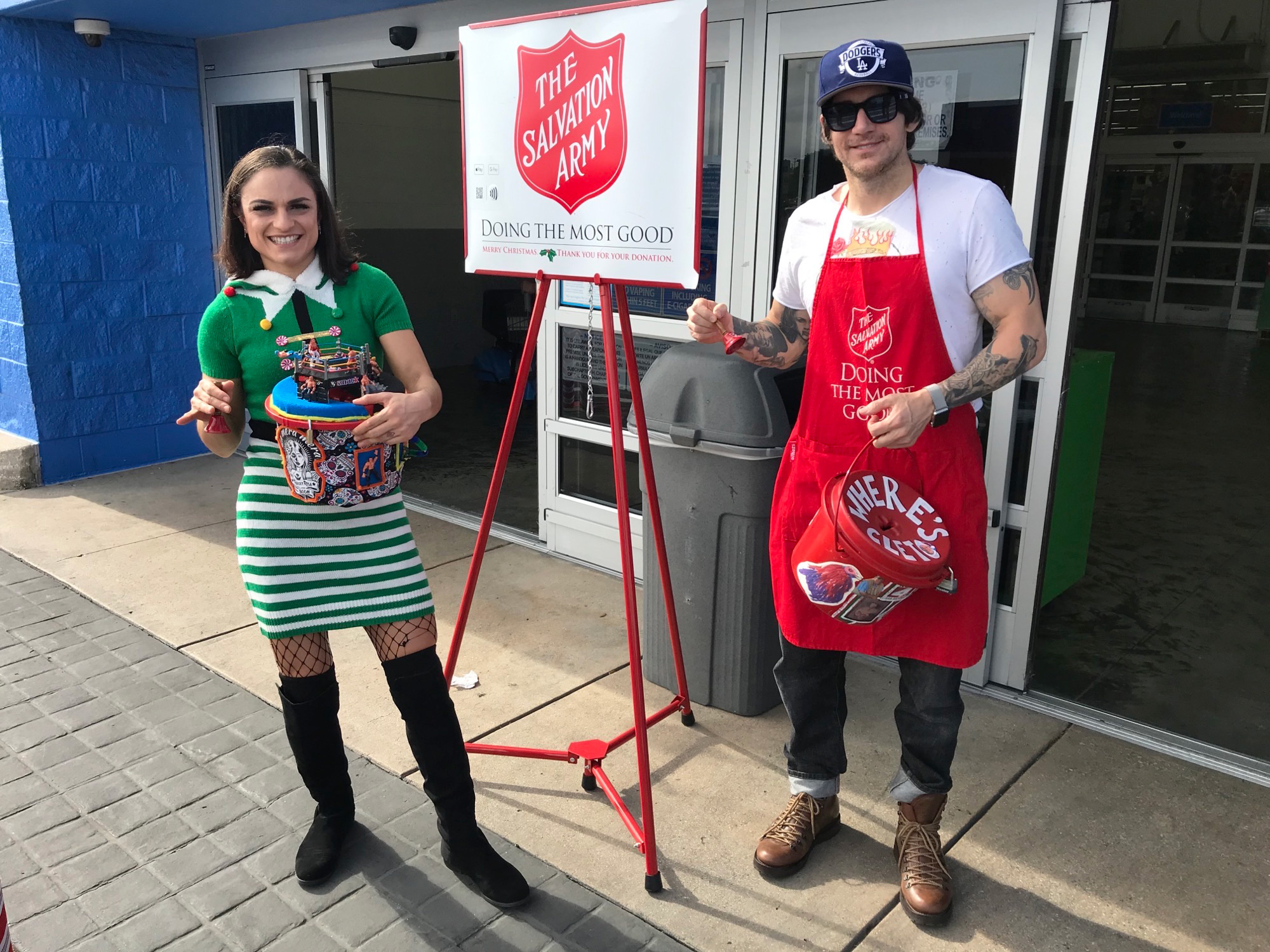
The Salvation Army San Antonio
Years before becoming the wrestler “Thunder Rosa,” Melissa Cervantes–Robles was studying sociology at UC Berkeley when The Salvation Army met a need of her family.
“While I was in college, my mother had surgery when, at the time, she was also experiencing homelessness. The Salvation Army in San Diego had a program for people that were in her situation and needed to be taken care of while recovering. It was a monthlong program, but they gave her a place to stay for two months. Ever since then, I’ve been loyal to the Army.”
As a social worker in the California Bay Area, Melissa remembers referring many families that needed assistance to the local Salvation Army corps. Her time in Oakland spent helping young people is still a minis try close to her heart.
Melissa’s wrestling moniker is inspired by Thunder Road, an Oakland adolescent rehabilitation center where she worked. The importance of serving others in need is a reason why she continues to support the Army.
“The Salvation Army’s reach affects so many people who face addiction and abuse or are families who need food on their table,” says Melissa. “It’s rare to see an orga nization that is so open and happy to help in any way they can.”
Melissa is also the founder of Mission Pro Wrestling, an all–woman wrestling organization based in San Antonio, Texas, where she resides. Mission Pro has performed shows and benefits for The Salvation Army, and its wrestlers have rung the kettle bell and offered their time as volunteers.
The path from social worker to wrestler hasn’t always been an easy one for Melissa. During some of the worst times and disappointments, Melissa kept going, knowing that God has never left her side.
“Even in dark times, I still see blessings from Him, whether they be physical blessings, such as new financial and work opportunities, or special moments in my life that I couldn’t have had without the difficulties.”
In 2022, Thunder Rosa had to relinquish her women’s world championship reign for AEW because of a serious back injury. It was a painful setback, as her main–event star status in the company was on the rise.
Having been in recovery and training for almost a year, she’s now optimistic about a comeback, but there were times when she believed that she would never be able to wrestle again.
“I’ve been talking to doctors and neurologists, but I know that at the end of the day, I’m at God’s mercy,” says Melissa. “Whether I can return or not, I continue to work harder, because He puts every obstacle in front of us for a reason.”
A TRUE ministry in Berwick
 In 2015, The Salvation Army in Berwick, Pa., began working with TRUE Wrestling, an independent wrestling company. The corps gym made space for a wrestling ring and chairs. The shows became a toy drive for the Army. Anyone who donated an unopened toy at the gate could obtain discounted tickets to the events. In Berwick wrestling circles, The Salvation Army had become TRUE Wrestling’s unof ficial home. This working relationship continued until 2020, when the COVID–19 pandemic took away live audiences for all sports, including pro wrestling.
In 2015, The Salvation Army in Berwick, Pa., began working with TRUE Wrestling, an independent wrestling company. The corps gym made space for a wrestling ring and chairs. The shows became a toy drive for the Army. Anyone who donated an unopened toy at the gate could obtain discounted tickets to the events. In Berwick wrestling circles, The Salvation Army had become TRUE Wrestling’s unof ficial home. This working relationship continued until 2020, when the COVID–19 pandemic took away live audiences for all sports, including pro wrestling.
Captain Michael Buzzard, a lifelong pro wrestling fan, and his wife, Captain Jennifer Buzzard, transferred to Berwick in 2021. They soon became aware of the Army’s connection to TRUE Wrestling.
“There had been talks of bringing wrestling back, now that restrictions had eased. Here I was, the ultimate fan, ready to make it happen again,” remembers Captain Michael. “I saw this as a built–in ministry coming to us. In pro wrestling, especially in the smaller, ‘indie’ companies, there’s a brotherhood between all the people who make the show happen, from the wrestlers to the guys who set up the ring.”
In July of 2021, TRUE Wrestling came back to the Berwick Corps for an event appropriately titled “Homecoming.” The Buzzards, wanting to help their guests feel welcome, set up a multipurpose room as “catering,” a term used at pro wrestling events for the space providing food for the wrestlers and staff. The pastors used chairs, benches, and hot meals from the corps’ soup kitchen.
Says Captain Michael: “I remember my wife and I going back into catering for a moment during the show, and there we heard a voice call out, ‘Hey, it’s those captain people!’ A wrestler called Big Aaron Nasty was waiting for us.”
Captain Michael was taken aback, thinking something might have angered the 6–foot–6–inch, long–haired, bearded gentleman. “Actually,” said Aaron, “this is the first building where we’ve wrestled and the owners have treated all of us with respect and dignity.”
For the remainder of 2021, wrestling events continued at the Berwick Corps, and the Buzzards connected the wres tlers to services that The Salvation Army offered. Many independent wrestlers have side jobs and sometimes struggle to make ends meet.
“Being able to get to know these wres tlers as people, praying with them before the show, and being witness to their cama raderie showed me that our passions can always become unique ministries,” says Captain Michael. “I could still be a pastor and take part in something that I’ve loved ever since I was a child.”
Wrestling for Camden
In August, Jordan Burroughs hosted a “Wrestling for All” clinic at the Camden Kroc Center. During the daylong session, he and a team of wrestlers demonstrated stances, techniques, and training drills that free style wrestlers practice. Local Camden high schools and wrestling clubs loaned mats for students to grapple on, and Philadelphia– based Honeygrow provided lunch for all the attendees. Burroughs and his team also spoke about their individual paths in wrestling and how it has shaped their lives.
“I wasn’t the best wrestler in my class. I wasn’t even the best wrestler on the block where I lived,” Jordan told the students. “But there were people in my life who didn’t just show me how to become a wrestler. They accepted me as who I was and took me under their wings. It wasn’t about getting fame or a big money contract; they didn’t really care about that stuff. They just wanted to create quality young people, and wrestling is a sport that does that. Where else can you spend a day putting someone in a hold, getting slammed on the ground, but afterwards laugh about it, shake hands, and become best friends?”
At the end of the day, Jordan expressed his gratitude for the chance to partner with The Salvation Army in Camden. He and his team were impressed by the size and facilities of the Kroc Center and noted how crucial the open space was for the event.
“There are going to be champions coming from this building, both in wrestling and in life. They are going to have a major influence in their community, and hopefully we can be a catalyst for it. There are a lot of people who poured into who I am today and gave me the desire to be more than I was.”
One of those people was freestyle Olympic wrestler Joe Williams, whom Jordan met in 1997. “I had never seen anyone with as many muscles as him,” Jordan says, laughing. “But hearing about what Williams accomplished made me believe that I could achieve that success and get those muscles. So, I hope that the kids who spent their time with me can see what wrestling is and how they can achieve success themselves.
“I’m happy to connect with an organization like The Salvation Army; they have the same goals and faith–based approach as I do. I know I could not have achieved what I have in life without my faith in the Lord. He’s the reason I have succeeded as a wrestler, a husband, and a father,” says Jordan. “If I could give something to the world to instantly change it for the better, the first thing would be a connection with God. The second would be wrestling.”
Read more from the latest issue of saconnects.


